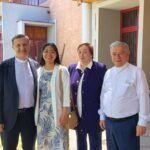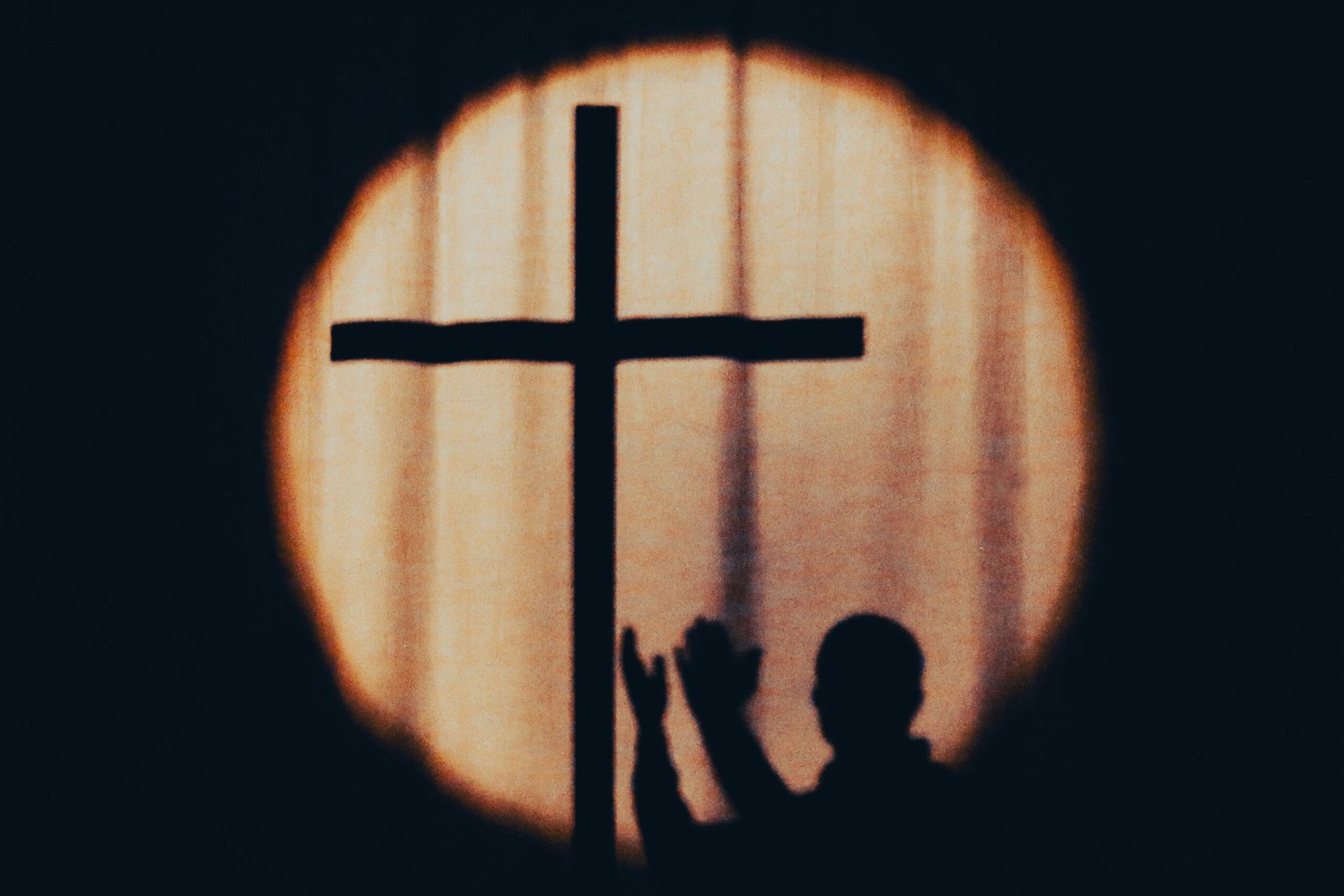
Gospel according to Saint Mark 1,12-15:
At once the Spirit drove him out into the desert, and he remained in the desert for forty days, tempted by Satan. He was among wild beasts, and the angels ministered to him. After John had been arrested, Jesus came to Galilee proclaiming the gospel of God: “This is the time of fulfillment. The kingdom of God is at hand. Repent, and believe in the gospel.”
A trip through time
Luis CASASUS President of the Idente Missionaries
Rome, February 18, 2024 | First Sunday of Lent
Gen 9: 8-15; 1 Pt 3: 18-22; Mk 1: 12-15
Why do we do so many things that we later regret? Why don’t we finish the good we started? These are delicate questions, which have many possible answers. But it is true that in our spiritual life we can find very practical answers that bring us closer to Christ and his way of living.
Today we have recalled how He was led into the desert and there He was not only tempted, but also undertook a long and solitary fast. We cannot always travel to a deserted and silent place, but we have within our reach another way of moving, which Christ undoubtedly practiced. It is about moving in time. It is not science fiction, it is not strange, and prophecy is just one example of it. Our Father and Founder affirms that prophecy allows us to live our destiny in advance. This is the most important element of prophecy, rather than anticipating events that may occur in one way or another.
In our prayer, we can indeed taste what Providence has in store for us for the future, but our imagination can also help us to choose the right path, just as a scientist can predict in his mind the outcome of certain experiments.
Returning to our initial questions, we can say that many times we lack perspective in time and that is why we get lost, we take wrong paths that, in addition, can harm others.
For example, suppose I express my intention to go for a walk. It does not seem negative, but perhaps I do not take into account if someone at home is in a time crunch and in need of help, if I could invite someone else, if someone is worriedly waiting for me to finish an unfinished task… All this can be avoided if I put my mind a few hours ahead and use my imagination to visualize the results, in this case the feeling of forgetfulness or insensitivity that I can leave in my neighbor.
Another example, more serious, is if I decide to stop talking to someone whose behavior angers me and I find unbearable. The immediate result may be that a clash is avoided, but if I look ahead into the future, I can imagine what will become of the other person when he or she feels accused by my attitude, what effect my behavior will have on those who observe me, and what may happen to both of us when weeks, months or years go by living in that resentment.
This is what happens to us whenever we make a hasty decision in a delicate matter.
In such cases, there are two possible states of mind: to be drawn in and fantasize in haste about something that appeals to us, or to walk away and see the bigger picture of how things will unfold if we act on our impulses.
Knowing where our actions will lead us before a tempting situation arises gives us the opportunity to make a decision in accordance with the Gospel. Only before we are swept away by the instinct for happiness are we in a position to plan steps to protect our innermost desire for perfection, our true aspiration.
The end result of many actions is predictable and seems as if it should be obvious…So we think when we observe how other people behave, or when we look back at our own behavior. But haste, tiredness or worry can get in the way and cause us to be truly blind.
Today, Christ gives us a lesson in the desert. As a man, he distances himself in the wilderness from his strength, from his capacity, and places himself in the hands of the Father. Fasting represents distance from the world, from the passions. But at the same time it means placing oneself before the divine will with the sign of wanting nothing more. That is the spiritual desert and that is also our permanent journey into the future in prayer. Something that goes beyond the popular mindfulness, or full attention to the present moment.
To help us understand Christ’s victory over the devil, there is a legend of African wisdom about the eagle and the crow. It says that the crow is the only bird that dares to peck an eagle. It sits on the eagle’s back and pecks it on the neck. When this happens, the eagle does not defend itself, but only spreads its wings and flies higher looking at the sun. At those heights, the crow cannot breathe well due to lack of oxygen, and so, it falls on its own.
If we do not give up in the face of problems, but visit our inner desert, we will hear the divine voice closer and the ravens in our life will fall. Neither the world, nor the devil, nor our flesh will be able to resist. Lent is a time to remember what Pope Francis said in his Lenten Message of 2021: God will make us new if we allow him to!
St. Augustine also warns us how even temptation can be transformed into an instrument of victory:
No one knows himself unless he is tempted, nor can he be crowned unless he has conquered, nor overcome unless he has fought, nor fight unless he lacks the enemy and temptations.
—ooOoo—
A few decades ago, nobody believed in the existence of black holes in the universe, but today they are studied and observed, being one of the keys to understand the origin and evolution of the cosmos. Similarly, many people do not believe in the existence of the devil, considering it a myth, a symbol or, even worse, a product of the magical beliefs of other times already overcome. For example, already in 1951 Rudolf Bultmann said: One cannot make use of electric light and radio apparatus, resort to means of clinical medicine in many pathological cases, and at the same time believe in the world of spirits and miracles.
However, only by taking into account the personality of the devil, who seeks to separate and deceive, can we effectively fight against our moral and spiritual dullness.
The forty days Jesus spent in the wilderness have a clear symbolism: forty years signify the time spent by the chosen people in the wilderness, a generation, which was continuously tempted and tested. This teaches us that the devil’s action is not occasional or only occurs at moments of special importance.
Mysteriously, but clearly, his presence is permanent and we have experience of how he skillfully takes advantage of our weakness, our fears and instincts, to separate us from the path. The wild beasts that surrounded Christ during his stay in the desert symbolize this permanent threat, which has nothing mythological or imaginary.
One of the fundamental deceptions that the devil uses is to make us confuse our personal identity, who we really are. Three times in the Gospel, Satan asked Jesus: If you are the Son of God… The devil wanted to make Him uneasy about His identity as the Son of God. Are we more than animals that eat, work, sleep, procreate and then disappear from the face of the earth? Or are we really created in the image and likeness of God, called to share with Him the fullness of life? For if we have only one life to live, then it is better to live selfishly. But if our fullness of life begins after death, then we must live selflessly and meaningfully because life continues beyond.
But not only do we have that consolation; the First Reading encourages us and encourages us to fidelity to the one who is not only Creator, but who has established a covenant, which is poetically recalled with the appearance of the rainbow, which appears among the clouds, in the midst of the storms.
Today, at the beginning of Lent, the Church exhorts us to live in the certainty that we are not alone. The presence of the angels who accompanied Jesus after the temptations is an example of how God places heavenly and human beings at our side so that we do not fall into an individualism that today – more than ever – permeates the lives of every human being.
The author of Genesis recalls the ancient vision of a God filled with anger for the sins of men, but he disposes us to open our hearts to the plans of an unconditional divine love. Jesus himself was assisted by a family, by disciples, by holy women who accompanied him in his public life, even by St. John the Baptist, who at one point in the Gospel is called “angel” because that means divine messenger (Mk 1: 2).
Moreover, it is the Spirit who leads him into the desert. The same Spirit who descended upon Him in the form of a dove during the Baptism (Mk 1: 10). The life of Jesus is the furthest thing from that of a self-sufficient individualist,
The pure conscience that St. Paul evokes in the Second Reading goes beyond moral integrity, but is intended to awaken us to our authentic filial identity.
He who does not remember that he is a son cannot live in gratitude, is not capable of making the most of what he has inherited and does not understand why he should love other human beings, who are sometimes unwelcoming to him.
That is why Fernando Rielo, in his book Transfiguration, says:
If you are not a son who adores
a single heavenly Father,
how can you deserve
to have those in your home love you?
_______________________________
In the Sacred Hearts of Jesus, Mary and Joseph,
Luis CASASUS
President













